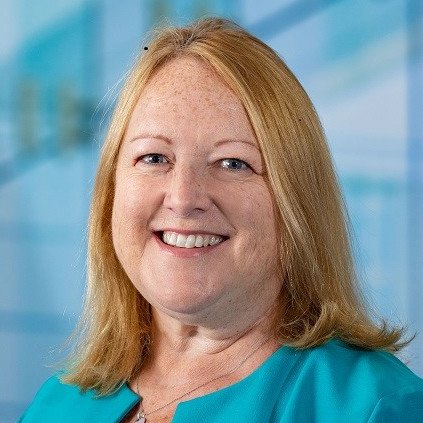Menopause
Menopause: Health & safety professionals on how it affects them and how employers can provide support
SHP has interviewed two health & safety practitioners, at different stages in their journey, about their personal experience with the menopause. We ask them a variety of questions on this somewhat ‘taboo’ subject, including, how it makes them feel, what they do to manage it and how employers can help.
The menopause occurs when a woman stops menstruating and is no longer able to conceive naturally. Periods usually start to become less frequent over a few months or years before they stop altogether, however sometimes this shift can occur suddenly. The menopause is a natural part of ageing that usually occurs between 45 and 55 years of age, as a woman’s oestrogen levels decline.
This interview is part of a series for Women in Health and Safety. As a member of the committee our goal is to amplify the voices of women in the profession. Some of the topics covered affect women more than men. Some are deeply personal. It’s our belief that we bring our whole selves to work and therefore should be able to talk about all sorts of issues that affect us, day-to-day, in a work setting.
Two things have struck us throughout this series. 1) We all have so much in common. 2) People are often very willing to open up, if they’re given a safe opportunity to do so with someone who is willing to listen without judgement. So, our hope is that issues discussed in this series resonate with readers, perhaps making some feel less alone, perhaps even giving some the confidence to share their own stories. We also hope readers will be encouraged to check in on colleagues, talk about the whole selves we bring to work and be there to listen.
Interviewees:

Fiona Gilbert CMIOSH
Fiona is the Head of QSSHE & Compliance with Serco-Transport. She is responsible for managing and leading the London Health & Safety team which provides advice, guidance, training, and support across our diverse client base.
Fiona believes that some of the stigma around discussing the menopause is linked to the stigma of ageing.
Anne Gardner-Aston
Anne is the Director of Health and Safety at the Canal & River Trust. She has been a safety professional since 2001, now with twenty years of experience ensuring safety management in high, medium, and low risk operational environments. Anne has led many high-performing teams of safety professionals with a focus on establishing a positive safety culture and continuous improvement, working with colleagues across organisations to promote industry-leading H&S performance, employee engagement and wellbeing.
Anne has recently started going through the menopause.
How has menopause physically affected you?
Fiona Gilbert: “Hot flushes haven’t affected me so much, but one time I had been rushing to get to a meeting and I turned up dripping, having one of the biggest hot flushes I’ve ever had. People looked at me like I was crazy. But you shouldn’t feel embarrassed. It’s the same as when you’re younger having period pains and you don’t feel you can talk about it, you just shrug it off and say you don’t feel well.”
Anne Gardner-Aston: “I get a sort of tiredness; I can just feel knackered.”
How has menopause mentally affected you?
Anne Gardner-Aston: “I’ve noticed problem with mental focus. Things become fuzzy and I get distracted. There are peaks and troughs. Some days are a write-off, some days are manageable, some days you don’t notice it at all. Forgetting things so much more easily is a common occurrence. I could be doing something one minute and completely forget that I’ve done it the next. My mind just goes blank.”
Have colleagues known what you’re going through?
Fiona Gilbert: “I’ve mainly spoken to friends about it, rather than colleagues. It can be embarrassing to talk about it at work, because you’re coming to terms with it yourself. With a lot of the symptoms I had, I didn’t actually realise straight away it was being caused by menopause – you don’t know always understand what’s happening to you, until you look back later. I’ve got friends who only ever wear cardigans, not jumpers, so they can take them off if that get hot. I could spot that sort of thing a mile off now, but 20 years ago it wouldn’t have crossed my mind. It’s only as I’ve gone through menopause, I’ve become more aware of what it actually is.”
What can colleagues and employers do to support women going through the menopause?
Fiona Gilbert: “Companies need to not just have this on their radar, more than just a hot topic for 2021. In the same way that with Mental Health First Aid, there was a push for it, and we always need to maintain it, we need to do the same for menopause now. It needs to be accepted and understood – it’s not going away.
“An awareness at an earlier age would be helpful. It affects everybody differently. Some people have no problems, others have a terrible time. I think education and awareness for men, and younger women is crucial. People whose wives or partners have gone through it will probably be aware of what’s going on, but a lot of people who haven’t ever gone through it themselves or had a partner go through it might not – I certainly didn’t have any idea what was going on with menopause when I was younger. I know my mum went through ‘the change’ but that was it – I didn’t know anything about it, and unfortunately my mum isn’t around anymore so I couldn’t ask her advice or guidance. And there aren’t many places you can go for help. That’s probably the reasons there should be some support.”
Anne Gardner-Aston: “Treat it as normal, which it is. We need to stop being so ashamed of it and stop laughing it off as ‘just one of those things.’ We should be recognising menopause as a factor in people’s work, their productivity, and their ability to show up. And we should start adapting work to manage women’s health – not just menopause, but also menstruation – problems that you face by being biologically female.
“We have to be quite vocal about the fact, we shouldn’t have to manage this, because we always have and have always had to be quiet about it. Let’s just talk about it. If you’ve got five or six days out of a month, where you feel crap, and you’re not showing up, that’s the organisation’s business. You can’t take that time off, realistically, so you have to manage through it, and they need to be making it as easy as possible.
“And it applies even down to the risk assessment side of things that. Some people will need to have physical and psychological risks taken into account within their risk assessment. The other advantage of talking about wellbeing is that you could revisit that risk assessment process and have a look at making it a little bit more individualised.
“With much more focus of a focus wellbeing generally within the workplace recently, we’ve had permission to talk about these things that are very female centric, all of a sudden. The door has been opened.
“If people are comfortable talking about these things, if we’re opening up the topics for conversation that are not just throw away lines. It’s quite derogatory to say ‘oh, it’s just her time of the month’, or ‘it’s just age’. We often say these things with a little laugh at the end, as we need to be apologetic about it. Well, we don’t need to apologise for it. Every biological female will go through it. We have the right to have it taken into account.”
Additional resources
World Menopause Day is held every year on 18 October. The purpose of the day is to raise awareness of the menopause and the support options available for improving health and wellbeing. Male and female professionals are encouraged to participate in this annual global awareness raising campaign by printing and sharing materials, organising events to engage their communities, and sharing World Menopause Day social media posts.
For more information on World Menopause Day 2021, click here.
What is the menopause?
Menopause signs and symptoms
How businesses can better support menopausal women
Does the equality maxim of ‘gender neutrality’ put women at greater health and safety risk?
For more information about the Women in Health & Safety Network, see our hub page here.
Read more from this Women in Health & Safety interview series.
Menopause: Health & safety professionals on how it affects them and how employers can provide support
SHP interviews two health & safety practitioners at different stages in their journey, about their personal experience with the menopause.
Safety & Health Practitioner
SHP - Health and Safety News, Legislation, PPE, CPD and Resources Related Topics
Employers must offer menopausal support or face legal action, new guidance says
Workplace wellbeing is for life – not just for January
‘I had no other choice but to wear it’: Michelle Stephens on ill-fitting PPE


